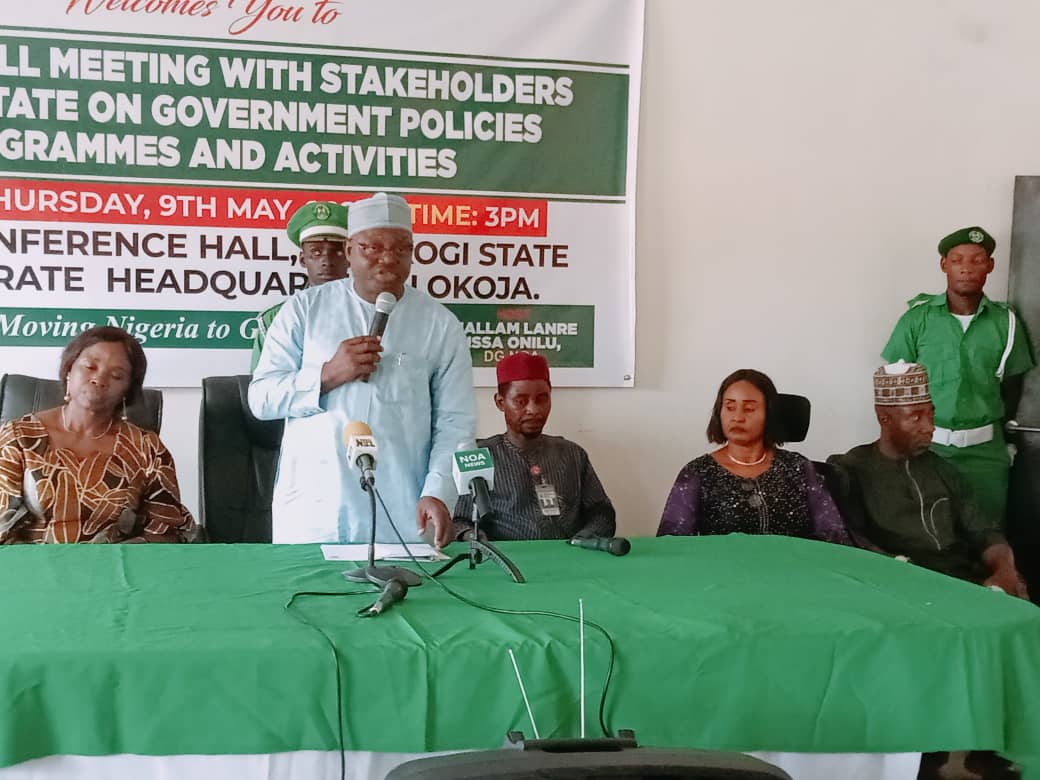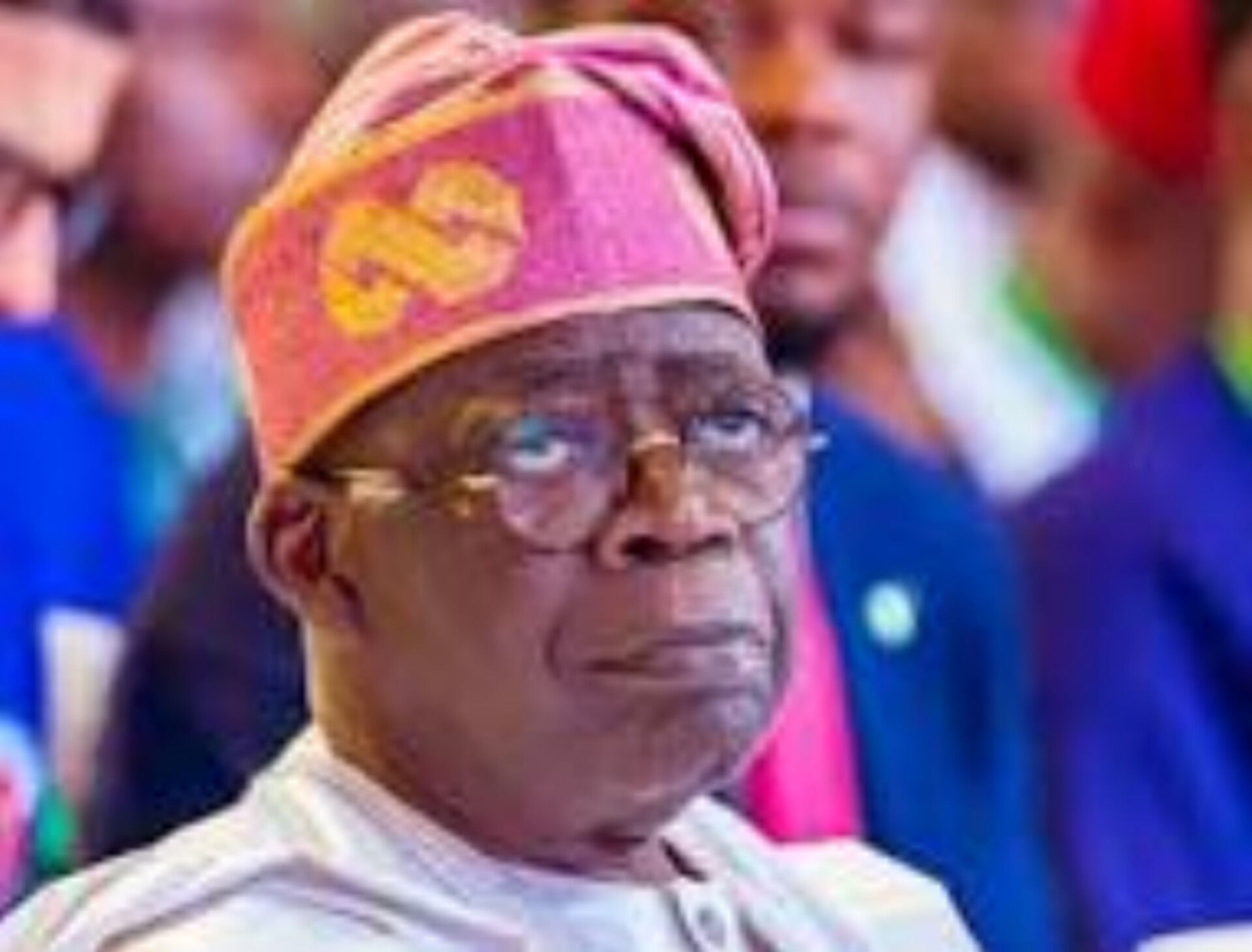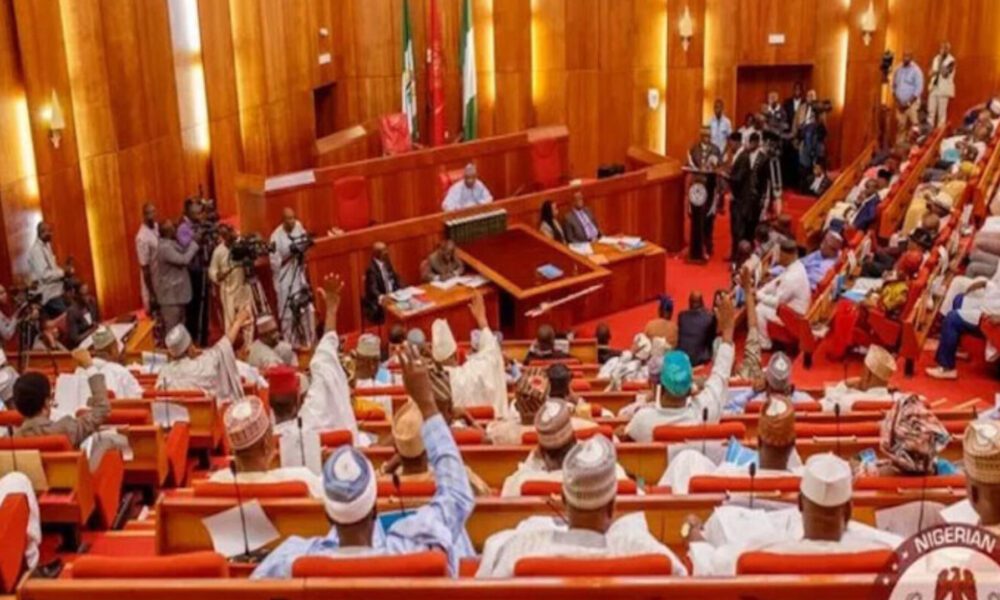By Friday Idachaba, Lokoja.
DIRECTOR-General of the National Orientation Agency (NOA), Mallam Lanre Issa-Onilu has said that the Nigerian nation is on the path of codifying its values through the National Values Charter being midwived by the Agency.

Issa-Onilu who disclosed this during a “Town Hall Meeting with Stakeholders in Kogi State on Government Policies Programmes and Activities” on Thursday in Lokoja said this was part of the mandate given to the agency by President Bola Ahmed Tinubu.
He said that the Values Charter was not anything new as all communities and ethnic nationalities hold strongly to their values but unfortunately, “the country has not put any value system in place.”

Onilu said values would only be appreciated when they are kept and made sacrosanct, promoted and nurtured by the people.
The NOA DG regretted that as it is today, no one can give a definite answer if asked, Who is a Nigerian? “We don’t have a definition for who a Nigerian is.
“And it is important we define who a Nigerian is because we know at the end of the day the definition would mean that a Nigerian cannot be a bandit, a proper Nigerian cannot be a kidnapper.
“A proper Nigerian cannot get to government and become a thief, stealing government resources and promoting corruption and bringing hardship to the people.
“A proper Nigerian is the one that will become governor and do the right thing, provide infrastructure, create employment and promote peace and stability in the state.
“That’s who a good Nigerian is. A good Nigerian is the president that will come and promote prosperity, ensure unity and there is no nepotism.
No one side is promoted above the other and no one side is marginalized. That is the value of a good Nigerian. But all of these are just my opinions”, the DG quickly added.
Issa-Onilu noted that Articles of great nations are codified and the values held in high esteem adding, “We must know ourselves and what we represent.”
He said that the best way to develop a nation is through attitude adding that attitude led us to where we are today and therefore called for character building by promoting the values charter.
The DG revealed that the Federal Government would soon introduce Citizenship Study in all schools from primary to secondary and tertiary levels as compulsory subjects or courses with emphasis on the right values, right character and how to be a good Nigerian.
This is to inculcate the right values in children so that when they grow up and get into the society, they would live their lives in a way that both the parents, the society, and the country will be proud of them.
“So this will happen soon. And we are starting this year with 37,000 Citizenship Brigades, 1,000 per state in primary school and secondary schools*, he said.
Stakeholders at the Townhall meeting, among other demands, called on NOA to impress on the the Federal Government the urgent need to reduce Petroleum pump price, and making Religious Education compulsory at all levels of education.
Speaking earlier, Mr Patrick Edogbanya, Acting State Director of the Agency in Kogi, commended Issa-Onilu for the visit saying that so far, the NOA DG had taken the message of government programmes and activities to 10 states, Kogi being the 11th.
Edogbanya noted that the Townhall meeting with stakeholders drawn from various societal strata in Kogi provided a rare opportunity to rub minds with the people towards finding a lasting solution to some of the surmountable challenges being faced by the country.
He enumerated some the DG’s achievements adding that his initiatives on staff welfare had started yielding results alluding to his charismatic team leadership adding, “Your hard work and selfless service show that we have a capable DG in the driver’s seat.” (Ends)




